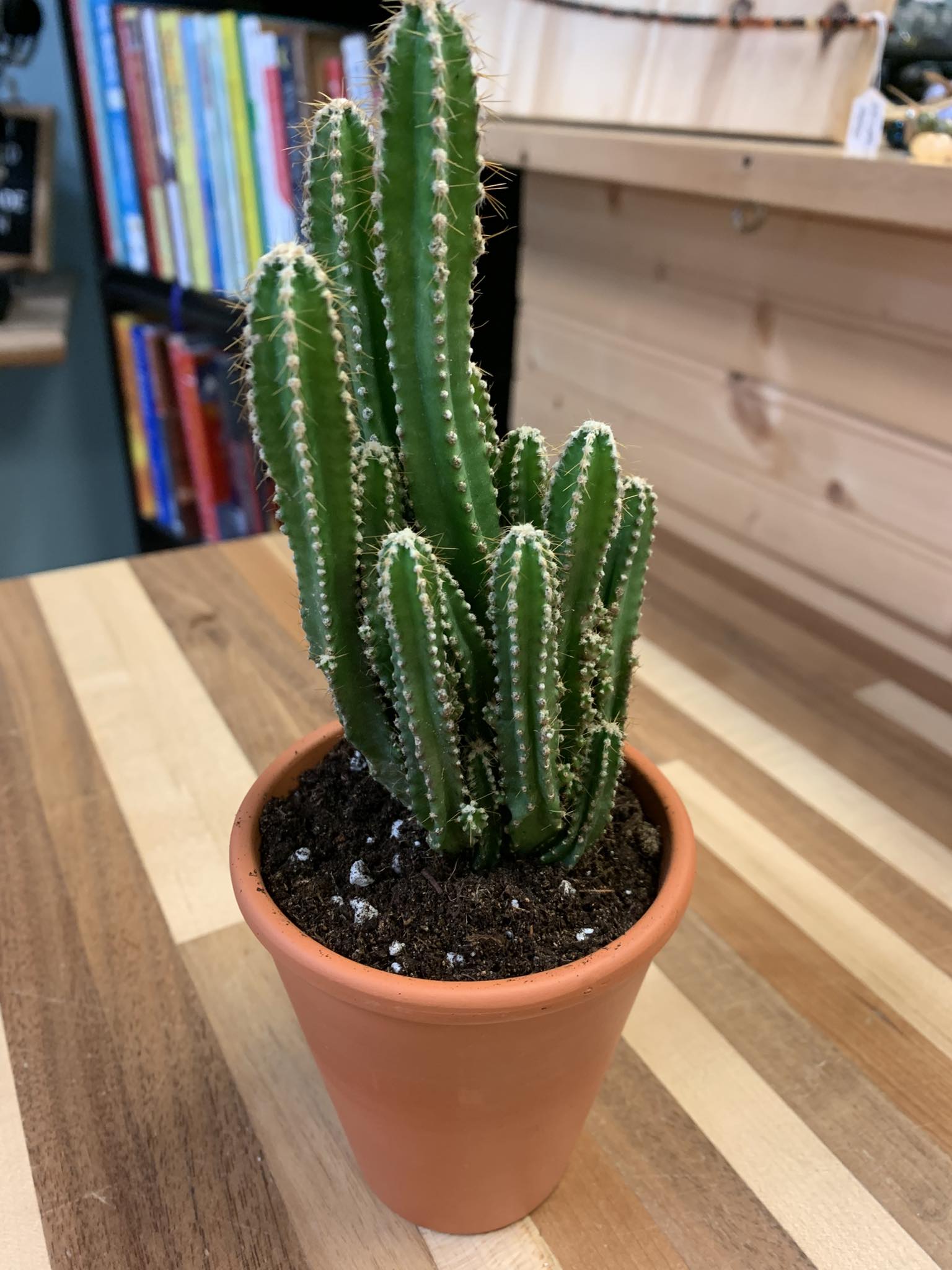Fairy Castle Cactus “🌵🏰 A Whimsical, Towering Succulent
The Fairy Castle Cactus, botanically known as Acanthocereus tetragonus ‘Fairy Castle’, is a popular cultivar beloved for its tower-like growth, reminiscent of the spires of a fairytale castle. With its upright, columnar stems, this cactus forms a multi-branched cluster of tall, vertical shoots of varying heights, giving it a charming, architectural shape.
Native to North, Central, and South America, the Fairy Castle Cactus is an excellent choice for indoor decoration, balcony pots, and xeriscapes, especially for gardeners who appreciate cacti but desire something a bit more whimsical in appearance.
🌿 Botanical Overview
Scientific Name: Acanthocereus tetragonus ‘Fairy Castle’
Common Name: Fairy Castle Cactus
Family: Cactaceae
Origin: Cultivar of Acanthocereus tetragonus, native to the Americas
Type: Evergreen, perennial cactus
Size:
Height: Up to 6 feet (180 cm) in the wild, though usually 1–2 feet indoors
Spread: 6–12 inches wide
Growth Habit: Columnar, densely branched, slow-growing
Stems: Green, ribbed with small, white spines along the ridges
Flowers: Rare in cultivation; large, white, nocturnal blooms in mature plants
☀️ Sunlight and Temperature Requirements
Sunlight:
Prefers bright, indirect sunlight
Indoors: Position near a south or west-facing window
Outdoors: Thrives in partial to full sun but may need protection from harsh midday rays
Temperature:
Ideal: 18–32°C (65–90°F)
Minimum: 4°C (40°F) — should be brought indoors if temperatures drop below this
USDA Hardiness Zones: 10–11
🌞 Too much direct, intense sunlight can cause sunburn, while too little light leads to leggy, weak growth.
💧 Watering Routine
Growing Season (Spring to Fall):
Water when the top 2 inches of soil are completely dry
Typically every 10–14 days, but frequency varies by climate and pot size
Dormant Season (Winter):
Water sparingly, about once a month
Avoid watering if temperatures are cold to prevent rot
💧 Always use the soak and dry method — thoroughly saturate the soil, then let it dry completely before the next watering.
🌱 Soil Requirements
Type:
Use a well-draining cactus/succulent mix
Enhance drainage with perlite, pumice, or coarse sand
pH Level: Neutral to slightly acidic (6.0–7.0)
Good drainage is essential to prevent water retention and root rot.
🌾 Fertilizing Schedule
Active Growth (Spring to Late Summer):
Fertilize every 4–6 weeks with a balanced, diluted cactus fertilizer
Use formulas with low nitrogen to promote healthy growth
Winter:
No need for fertilizing during dormancy
🧪 Over-fertilizing can lead to unnatural, rapid, weak growth that can collapse.
✂️ Pruning and Maintenance
Pruning:
Rarely needed, but you can trim:
Damaged or discolored stems
Unwanted or excessively tall columns to encourage compact growth
Use sterile, sharp scissors or pruning shears
Maintenance Tips:
Rotate the pot occasionally for even light exposure
Dust the stems gently with a soft brush
🌿 Propagation
Stem Cuttings:
Cut a healthy stem segment with a clean knife.
Allow the cutting to callous for several days in a dry, shaded area.
Plant in dry, well-draining soil.
Water lightly after the first 7–10 days.
Offsets:
Some mature plants produce pups near the base which can be separated and rooted.
🌱 Propagation is generally easy and successful, making it ideal for beginners.
🐛 Pests and Diseases
Common Pests:
Mealybugs
Spider mites
Scale insects
Diseases:
Root rot from overwatering
Fungal infections in high humidity or poor ventilation
🛡️ Treat pests with insecticidal soap or neem oil and maintain a dry, well-aerated environment.
🏡 Decorative and Landscaping Uses
Indoor Decoration:
Suited for window sills, sunny rooms, and offices
Great in decorative ceramic pots
Outdoor Landscaping:
Used in rock gardens, cactus gardens, and xeriscapes
Excellent for low-water landscaping
Companion Plants:
Pair with other succulents like Haworthia, Echeveria, or small Agave species.
📸 Its castle-like form makes it a photogenic centerpiece in plant arrangements.
✅ Conclusion
The Fairy Castle Cactus is a delightfully whimsical, slow-growing plant that’s perfect for beginner gardeners and cactus enthusiasts alike. With minimal water, plenty of bright light, and well-drained soil, it remains healthy, architectural, and strikingly beautiful.
While it rarely flowers indoors, the unique form and minimal maintenance needs more than make up for the elusive blooms.
“





Reviews
There are no reviews yet.